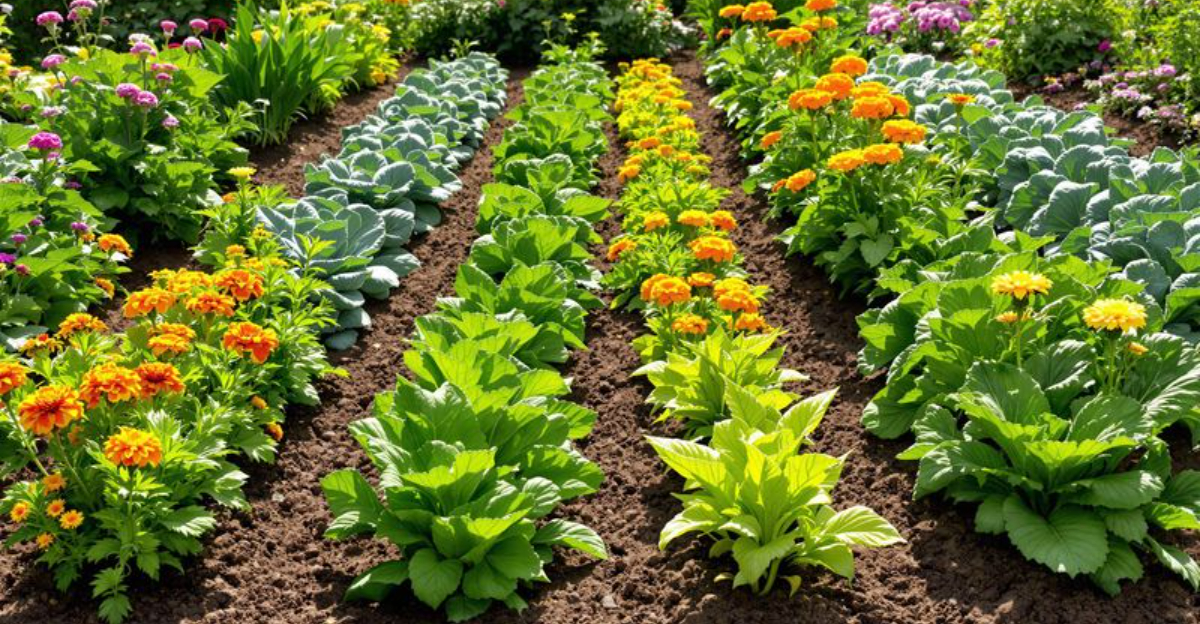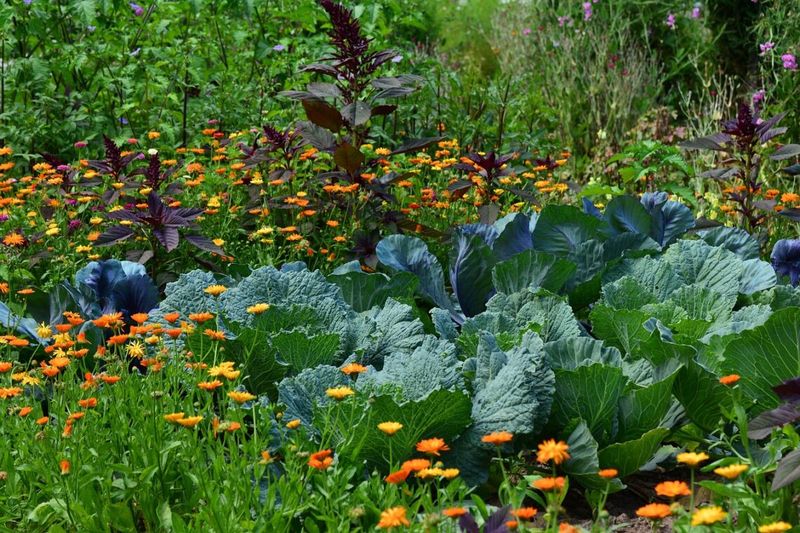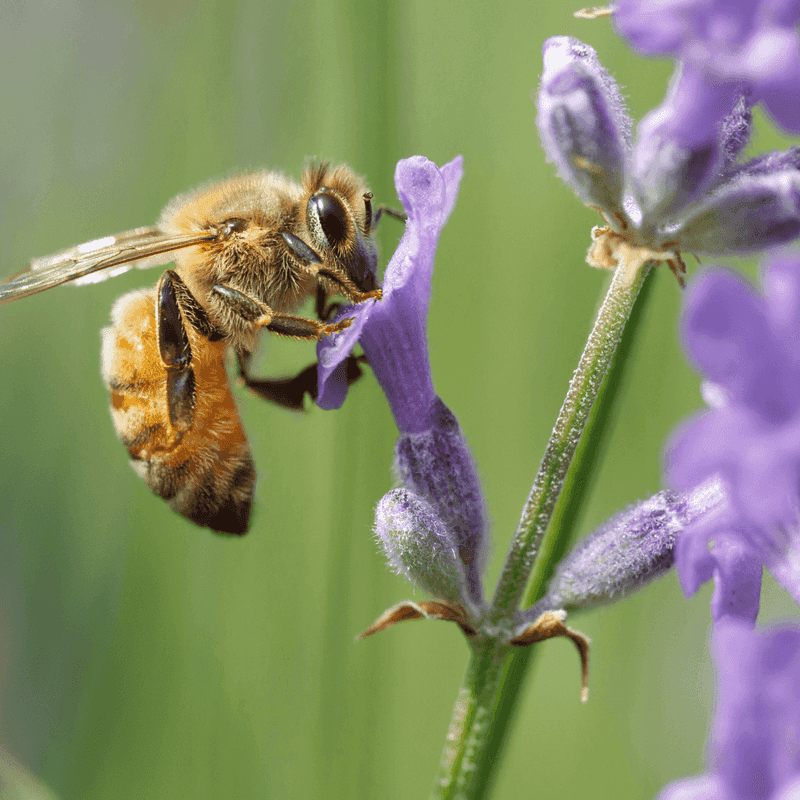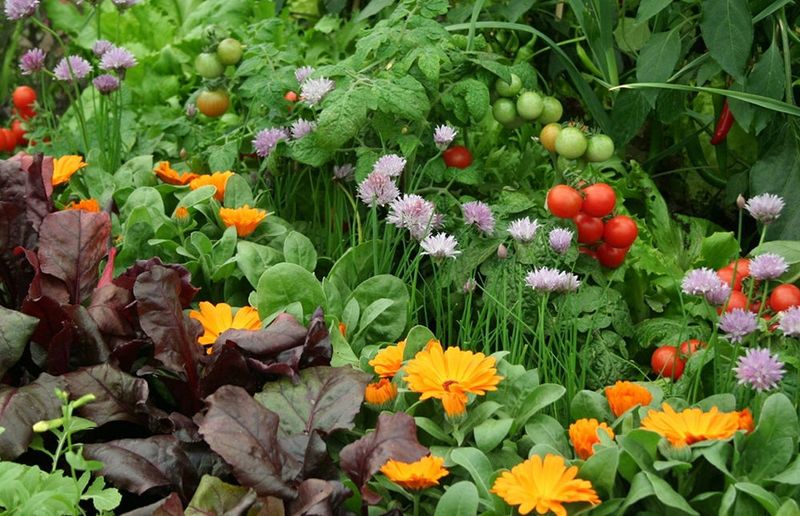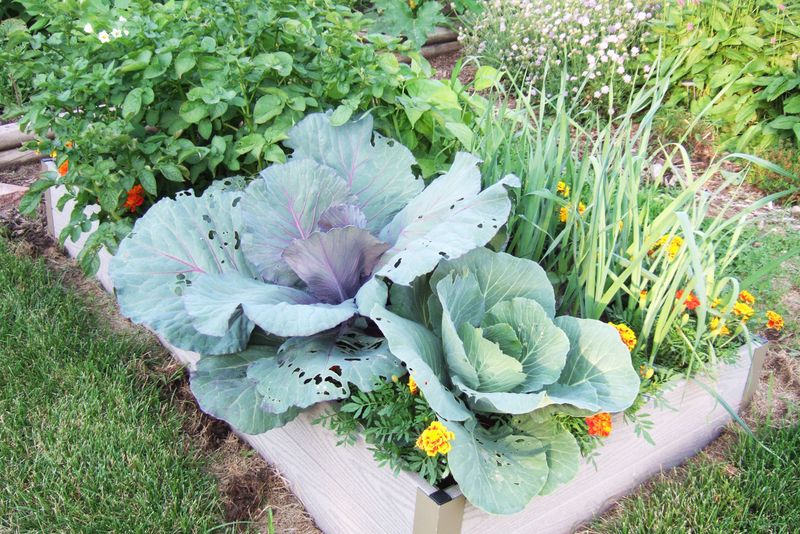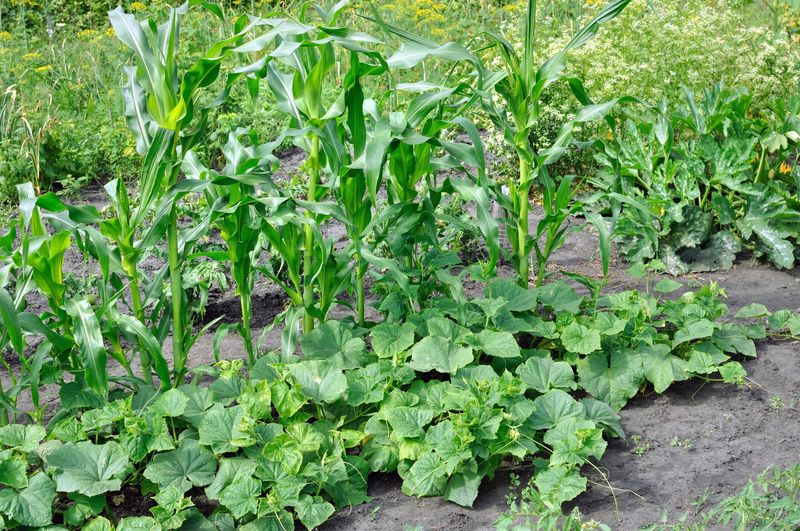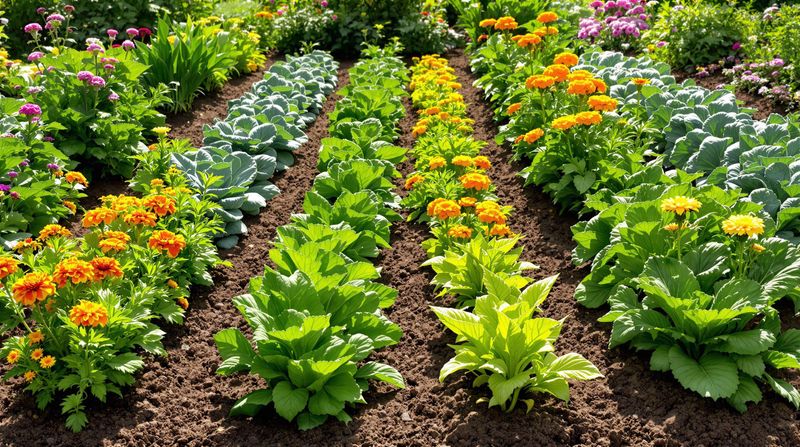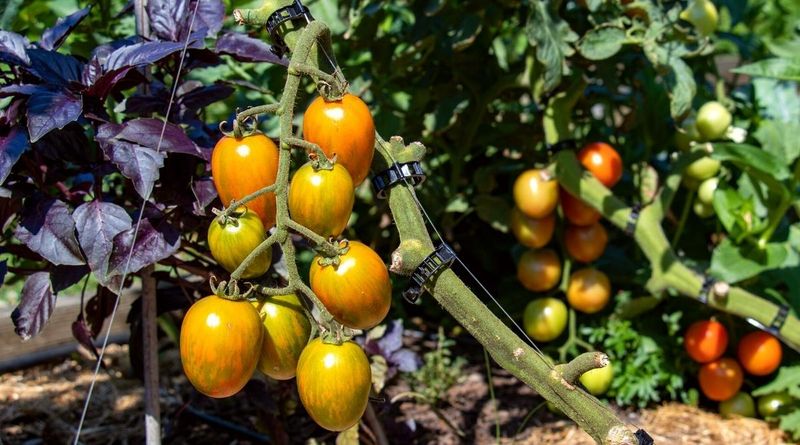Companion planting is more than a gardening strategy – it’s a way to cultivate harmony in your garden.
By selecting specific plant combinations, gardeners can enhance growth, improve pest control, and even increase crop yields.
This blog explores seven surprising benefits that will have you rethinking your planting plans.
1. Natural Pest Control
Companion planting works wonders for natural pest control. Plant marigolds around your vegetables, and their aroma will deter aphids and nematodes naturally. Basil is another great companion; its strong scent keeps flies and mosquitoes at bay.
Imagine a garden full of healthy, vibrant plants unbothered by these common pests. Using such plants means fewer chemicals, creating a safer environment for beneficial insects.
Encourage biodiversity by strategically placing pest-repelling plants around your garden. Embrace this natural method and enjoy the benefits of a thriving, pest-free garden. Let nature do the work while you enjoy the fruits of your labor.
2. Improved Pollination
Boost pollination in your garden with companion planting. Lavender and sunflowers attract bees, butterflies, and other essential pollinators. These busy insects help your fruits and vegetables produce more abundantly, increasing your garden’s overall yield.
Position these flowering plants near crops that need extra pollination support. The vibrant blooms not only beautify your garden but also create an environment teeming with life. This natural attraction ensures every plant gets the pollination it needs.
Enjoy a lush garden with more fruits and vegetables, all thanks to your pollinator-friendly companions.
3. Better Use of Space
Maximize every inch of your garden with clever companion planting. Tall plants like corn can provide much-needed shade to sun-sensitive crops such as lettuce. Meanwhile, vining plants like beans make use of vertical spaces by climbing upwards.
This strategic planting makes the most out of limited space, turning small gardens into productive havens. By filling gaps with low-growing plants, you ensure no area is wasted.
Whether you have a sprawling backyard or a compact urban garden, companion planting can help you grow more with less space. Your garden’s potential is limitless with the right combinations.
4. Enhanced Soil Health
Enhance your garden’s soil health through companion planting. Legumes such as beans and peas are natural nitrogen fixers. They enrich the soil, providing essential nutrients for neighboring plants like tomatoes and corn.
This symbiotic relationship reduces the need for synthetic fertilizers, making your garden more sustainable. Healthy soil not only supports vigorous plant growth but also enhances the resilience of your garden ecosystem.
By rotating these nutrient-rich plants, you maintain soil vitality season after season. Embrace the power of legumes to nurture a fertile and flourishing garden naturally.
5. Weed Suppression
Companion planting offers a natural method for weed suppression. Dense-growing plants like squash create a living mulch, shading the soil and preventing weeds from sprouting. This natural barrier ensures your garden remains tidy and productive.
By minimizing open soil, you reduce the opportunity for weeds to take hold. This method not only saves time on weeding but also keeps your garden looking lush and cared for.
Employ dense companion plants strategically to maintain a healthier, less labor-intensive garden. Enjoy more time admiring your plants and less time battling weeds.
6. Disease Prevention
Prevent diseases in your garden with companion planting. Certain plant pairings, such as garlic with tomatoes, create physical barriers that reduce the spread of soil-borne diseases.
The scent and properties of these plants can also modify humidity and airflow, further deterring disease. This proactive approach helps maintain plant health, reducing the need for chemical interventions.
By understanding the benefits of specific plant combinations, you can cultivate a garden that is naturally resistant to common ailments. Keep your plants robust and thriving by using nature’s own defense mechanisms.
7. Flavor and Growth Boosting
Enhance the flavor and growth of your crops through strategic companion planting. Herbs like basil and chives are known to boost the taste and vitality of nearby plants such as tomatoes and carrots.
This harmonious pairing leads to a more delicious and bountiful harvest. The aromatic presence of these herbs may also deter pests, providing additional protection.
By carefully selecting plant companions, you not only enrich your garden’s productivity but also elevate the culinary quality of your produce. Discover the joy of tastier, more robust crops by letting nature’s partnerships enhance your garden.
